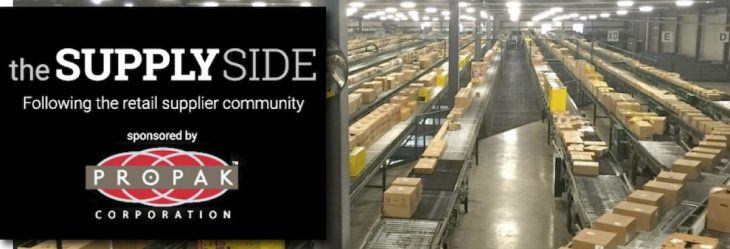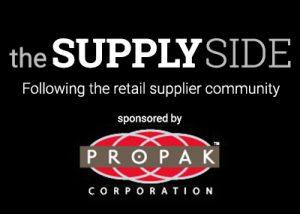The Supply Side: Companies exploring opportunities in blockchain technology
by April 24, 2018 12:45 pm 746 views

Blockchain technology is now much like the internet was in its early years. Its impact is hard to understand and predict. It’s like the Wild West, with few laws and lots of experimentation. However, blockchain experts believe it has the ability to disrupt the retail supply chain and other business sectors over the next decade.
A blockchain application is a distributed peer-to-peer system for validating, timestamping and permanently storing transactions on a distributed ledger. There is a built-in gatekeeper that gives access to the right parties at the right times. Blockchain can allow systems to communicate together sharing the appropriate data without compromising its security. It is blockchain technology that allows bitcoin to transfer value across the globe without reporting to banks and other traditional intermediaries.
A recent blockchain conference was held in Fayetteville by the University of Arkansas, with more than 100 people attending in hopes of getting more clarity on the potential applications for their businesses.
Walmart has focused on blockchain technology for the past five years. And rather than go it alone through the discovery journey, Walmart has opted to be part of a consortium studying the impacts of blockchain to enhance food safety. The group includes Kroger, IBM, Tyson Foods, Nestlé, Unilever, McCormick, Dole, Driscoll’s and Danone. The group’s goal is to help set standard protocols for using blockchain technology to trace food from the farm to the consumer.
FOOD SAFETY
Archana Sristy, director of engineering for digital solutions at Walmart, spoke at the conference about the benefits of blockchain applications in the supply chain as it pertains to food safety. Sristy asked the crowd how many of them liked organic foods, and then she quickly added, “How do you know it’s organic?” She said despite government rules, there is more organic food sold than what is produced.
She described the retail supply chain as highly fragmented and decentralized in nature. In citing a case study Walmart did with IBM nearly two years ago, the retailer sought to use blockchain technology to trace mangoes sold in the U.S. from origin farms in Mexico.

Sristy said that creates waste and unneeded cost burdens in the food chain. Walmart’s case study on mangoes found that using a blockchain application that allows systems to talk to one another reduced the tracking time for a recall from almost seven days to 2.2 seconds.
She said the case study shows huge potential for blockchain to improve food safety by expediting the time it takes to pull tainted food off the shelf.
“Blockchain is not a fix-all,” she explained. “As good as technology is today, it won’t solve our problems with processes. For Walmart, the early work has shown standards need to be set within certain industries because if everyone sets their own parameters around blockchain, we could end up with systems that aren’t able to communicate with one another.”
SUPPLIER APPLICATIONS
Working in consortiums is one way Walmart, its competitors and suppliers can work through the blockchain universe together, setting standards which will be widely adhered to by the industry at large.
Lee Slezak, vice president of IT architecture at Tyson Foods, said the company began to study blockchain and its supply chain potential nearly two years ago. Tyson Foods completed a pilot that can trace product from the family farms to its distribution centers.
“As our business scales up, we are moving from an analog company to a digital one,” Slezak said. “We needed to digitize many of our processes. This move is crucial if we are going to be able to help feed the 9.6 billion consumers around the world by 2050. We looked at blockchain as a way to build trust with our customers. We found the technology behind it is not rocket science, but it was more challenging to find the right applications, data management and governance of blockchain.”
He said working in consortiums is a good way to work through lessons learned, have input into how the industry will use blockchain and find applications that help drive commerce forward.
It’s not just the corporate giants evaluating blockchain and its potential impacts. Jeff Charlson, CEO of Bentonville-based Bike Rack Brewing Co., said when working at WalmartLabs five years ago, he was on the team dispatched to Silicon Valley to learn more about blockchain and potential implications for retail and supply chain.
Fast forward to 2018: Charlson is an entrepreneur running Bike Rack Brewing, which has two locations in Bentonville and is planning to open a third later this year in Springdale. As a supplier to retail, he is now interested in blockchain applications because of the transparency it can provide into perishable products like his non-pasteurized craft beer.
“I sell a premium product that has a short lifespan,” Charlson said. “Knowing the date it was packaged, what ingredients are inside and date of manufacture, as well as information on the farms providing raw ingredients, is a great marketing tool for beer enthusiasts — my core customers.”
LOGISTICS INTEREST
Logistics giants J.B. Hunt Transport and ArcBest are also studying the impacts of blockchain. Kevin Yoder, associate director of innovation at ArcBest, said the company is early in its journey to get an organized account of blockchain. He said taking part in consortiums and being in on the ground floor of developing standards for the trucking industry are important.
Jay Davidson, vice president of technology at J.B. Hunt, said the company has been engaged in blockchain applications for the past couple of years.
“We are interested in removing friction, and saw an application in our B2B contracts that move containers from China to retail distribution centers in the U.S.,” Davidson said. “Our concerns were confidentiality going in, but have found the permissions and smart contracts that come with a blockchain application work fine.”
He said Hunt is part of the Blockchain in Transport Alliance (BiTA) consortium that is setting common standards and framework from which industry participants can build their own applications. Some of the areas BiTA is addressing involve smart contracts that self-execute without the need for governance, freight payments that are seamless such as bitcoin and transparency, and chain of custody of freight.
Davidson said the internet of things (IoT) and sensors on pallets, trucks and containers are already in use and don’t need a blockchain application. However when combined with a blockchain application more information can be known and shared seamlessly among all the stakeholders.
“Blockchain is real, and our larger customers are interested,” Davidson said. “We are focused on applications that provide commercial opportunities.”
–––––––––––––––––––
Editor’s note: The Supply Side section of Talk Business & Politics focuses on the companies, organizations, issues and individuals engaged in providing products and services to retailers. The Supply Side is managed by Talk Business & Politics and sponsored by Propak Logistics.
